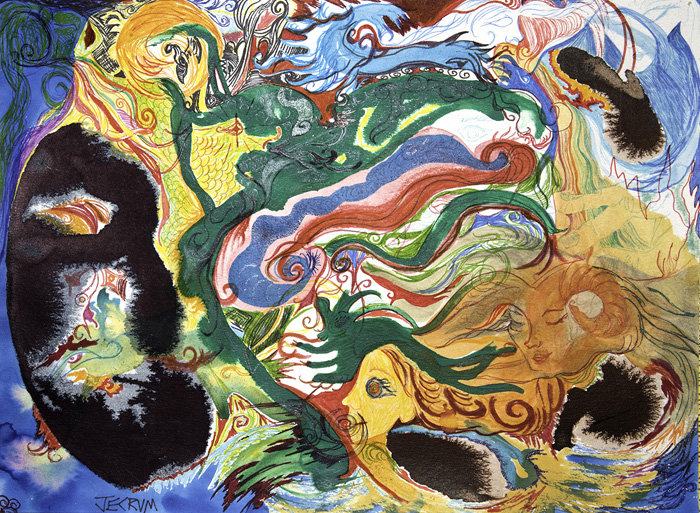Flash Nonfiction
by Hibah Shabkhez

Write a mémoire in your language, and have it say: “Out, ye autres who know naught of my world!”
Write it in a foreign one, and it says to your own world: “I have bled ye dry to water my words, stript the flesh from your bones to feed them meaning. Now hence, bare withered husk, for these my words shall repose in other soils.”
When you write it in all deux trois quatre langues à la fois, however, you place upon your work a lock jo translation se bhi pura nahi khulna. And then you ‘because’ your way out using authenticity and whatnot, but is that not even more unfair? A question that invites another: fair to whom? Am I reflexively doing the colonial thing of tea-straining my culture for a more ‘mainstream’ audience, or is it merely that a history of colonisation is making me paranoid?
If we switch codes because one tongue alone will not hold all of the truths of our many-layered world, kiyunke jo cheezain hoti hi nahi hain siwaye eik language mein unhain bolo ge kaisay beghair unki wali ke; how do I suddenly distill them all into grimly academic French? How do I write about our whacko, baffling code-mishmash in just one language, and that the foreignest language of them all? Mais peut-etre that is the only one that will hold it, the votre and autre at the same time, the one resolutely alien yet beloved? Puisque the first time that you don’t have to consciously translate or remember any words or phrases, the first time the whole just leaps into words straight from your mind – the moment that happens in a langue, it is no longer quite étrangère: it begins to be yours, just a little, and to sink its roots into your heart. In that way, le français c’est ma langue aussi. Mais it is not the langue of my mother and my father and my patrie, it is not the langue of the story-worlds I grew up in, nor yet of the poesies that most deeply stir my blood. It is also the language of la force and carries the taint upon it still.
Within one language, poems are word-paintings that pin wick fragments to boards in linguistic formaldehyde. Story-histoires tell us what could have or should have or would have happened if the world had been looked at a certain way by a certain kind of creature, and essais are either immortal hybrids or mere raw-drafts of those, shivering and dying in the woods. But when languages criss-cross, when they slash and splash each other’s textes, là, alors, qu’est-ce qui se passe? Is it a grand bataille of foes locked in an eternal trench-war, wresting and yielding every inch with blood? Or is it simply the casual uninvited dropping into each other’s houses of very old friends? And maybe, just maybe, not explaining your existence to an uncomprehending public is the one sure way of understanding it yourself?
Appeared in Issue Spring '20
Nationality: Pakistani
First Language(s): Punjabi
Second Language(s):
English,
Urdu
Das Land Steiermark

Listen to Hibah Shabkhez reading "The Foreignest of Them All".
Supported by:

